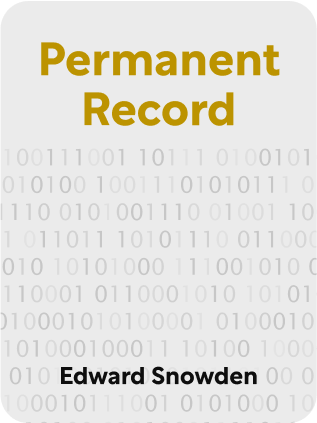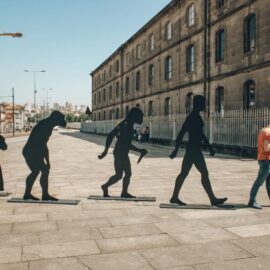

This article is an excerpt from the Shortform summary of "Permanent Record" by Edward Snowden. Shortform has the world's best summaries of books you should be reading.
Like this article? Sign up for a free trial here .
Was there an Edward Snowden online persona when he was a kid? How much time did Ed spend on the internet? Did these online experiences impact Ed’s clearance?
For Edward Snowden, online worlds were a freeing place to be. Learn about Snowden, online chats, and gaming, and how it all plays out in a government background check.
Edward Snowden’s Online Life
When Ed was approximately 12, he decided to spend as much time as he possibly could on the internet. For Snowden, online time became an obsession. He became paler, sedentary, and slept at school instead of at night.
Edward Snowden: Online Chat Boards
There were a few ways to chat with people. For Snowden, online chatting was best with bulletin-board systems (BBSes). Ed mostly used them to ask questions about building computers and received plenty of personal, generous responses. Reflecting back on this as an adult, Ed thinks most people on the Internet were civil because there was a high bar for entry. It wasn’t easy or convenient to use the Internet—you had to plug your computer into a phone jack and it could take whole minutes to establish the dial-up connection. If you were willing to go to the trouble to get online, you were worth talking to.
For Snowden, online was appealing because of the freedom anonymity gave him. He didn’t have to be a 12-year-old boy, he could be anyone, and he created a variety of personas for himself. Whenever he had what he considered a stupid or amateur question, he’d ask it on an amateur board under a new name. Or, if he posted something inflammatory and people hated the post (they couldn’t hate him because they didn’t know who he was), he’d drop the name and pick up a new one. Sometimes, he’d even use the new name to join the mob complaining about what he’d previously posted himself. He felt this was a relief. Thinking back to this time as an adult, Ed thinks it was important that he could do or say stupid things on the Internet and not be held accountable. When he made mistakes, no one knew it was him who’d made a mistake, and it was easy to recover.
Ed finally had to reveal his age after one of his BBSes tried to set up in-person meetings. People wanted him to go and he finally had to explain why he couldn’t. No one minded that he was young though; in fact, his correspondents became more encouraging.
MMORPGs
When Ed played MMORPGs, he enjoyed trying to figure out which alts belonged to the same person. Based on how their alts spoke or acted, he could see patterns between characters that suggested they were voiced by the same person. He also liked trying to make his alts as distinct as possible so that no one would figure out they were played by the same user.
Everything would change in the 2000s when the government and businesses started to link online personas to people’s real-life identities.
Getting Clearance
Ed aimed for TS/SCI. The background check made Ed reflect on his childhood online activities. He was less worried about embarrassing searches for porn—everyone does that—and more concerned about his posts on forums.
Ed could have deleted his posts if he’d wanted to. This wasn’t illegal, nor would it have affected his clearance. However, he decided to leave everything up. If he took things down, he’d perpetuate the idea that you can’t make a mistake—you have to be perfect, and if you’re not, you’ll pay for it forever.

———End of Preview———
Like what you just read? Read the rest of the world's best summary of Edward Snowden's "Permanent Record" at Shortform .
Here's what you'll find in our full Permanent Record summary :
- What Ed Snowden discovered that caused him to completely lose faith in the government
- How Snowden led the bombshell reports of US mass surveillance
- How Snowden is coping with his treatment as both patriot and traitor






